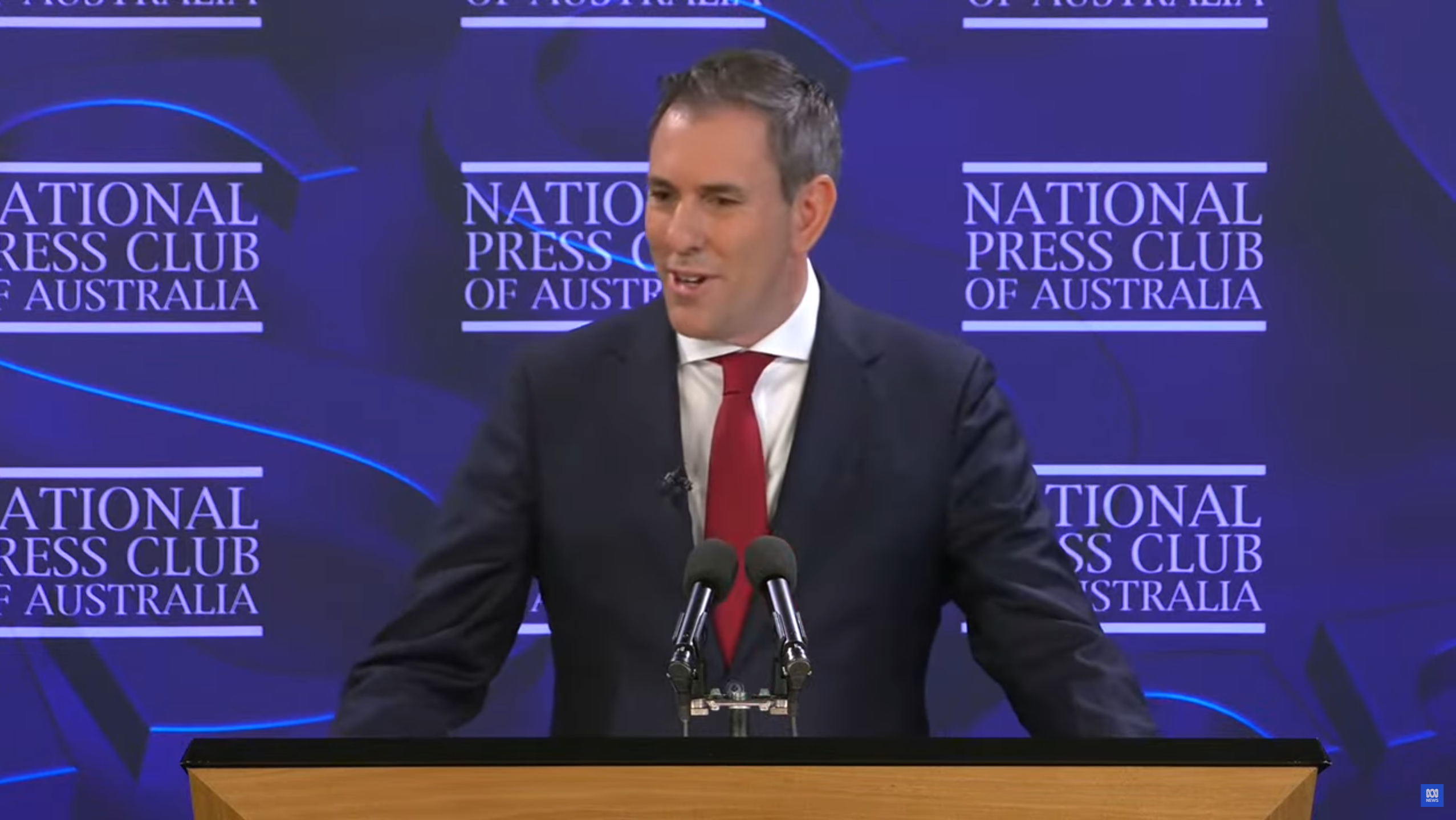Australia's Treasurer Jim Chalmers delivered a sweeping defence of the Albanese government’s economic stewardship on Wednesday, outlining an ambitious second-term agenda aimed at enhancing productivity, strengthening budget sustainability, and improving national resilience amid persisting global uncertainties.
In a speech at the National Press Club, Chalmers said Labor’s reform program would continue to be “practical and pragmatic” — grounded in economic reality, but driven by progressive ideals.
He argued that Australia's economic challenges demanded “methodical reform, which is considered and collaborative and ambitious”, and rejected extreme ideological approaches that he believes have polarised global politics.
“In our first term we stabilised and strengthened our economy, got inflation down, got real wages up, kept unemployment low and improved the budget position,” he said.
Chalmers stressed that these gains were not coincidental, but rather the result of deliberate, responsible economic management, saying: “We have made the right calls, but there’s more to do.”
He pointed to Labor’s achievements in maintaining historically low unemployment even while driving down inflation — a feat he described as “unusual if not unprecedented”.
Chalmers also noted that “our first term saw faster jobs growth than any G7 economy, and the lowest average unemployment of any Australian Government in the last half century, while inflation fell considerably”.
“No major advanced economy has combined unemployment in the low 4s with inflation under 2.5 and 3 years of continuous growth,” he added.
Chalmers acknowledged that many Australians are still feeling financial stress despite improvements in the headline data. But he cited encouraging signs of progress, including a surge in dwelling investment, rising consumer sentiment, and real wages growth.
“The past nine months are among the fastest three quarters of real per capita income growth in 15 years,” he said.
Still, the Treasurer noted that these developments, while welcome, do not mark the end of the road, “Our budget is stronger, but not yet sustainable enough. Our economy is growing, but not productive enough. It’s resilient, but not resilient enough – in the face of all this global economic volatility.”
“When you look around the globe at all this extreme volatility it would be misguided to assume it’s temporary, when it reflects deeper currents,” he said. “The rules and ideas that made up what we thought of as the global order are being re-written.”
Chalmers outlined three overarching priorities: lifting productivity, achieving long-term budget sustainability, and reinforcing Australia’s economic resilience.
The government will begin this next phase of reform with a national productivity roundtable in August — an initiative inspired by the successful Jobs and Skills Summit convened early in Labor’s first term.
But Chalmers rejected the suggestion this was a political rerun.
“This isn't just a rinse and repeat situation,” he said. “There’s a role for government in getting the settings right, getting regulation right, targeted interventions in key areas like the energy transformation and housing. But businesses need to step up too and invest in new technologies, more efficient operations, and skills.”
To support worker mobility and innovation, Chalmers pointed to efforts to scrap non-compete clauses and expand cross-border employment opportunities.
On artificial intelligence, he said the government would work closely with Industry Minister Tim Ayres and Assistant Minister Andrew Charlton to “capitalise on the huge gains on offer, not just set guardrails.”
Chalmers also signalled a shift beyond Labor’s original electoral mandate, asserting that the government has a responsibility to pursue reforms that secure the nation’s long-term prosperity.
“Reform is not just a test of a treasurer or a cabinet but a test of our country,” he said.
Central to that reform agenda is a renewed push for structural tax reform. Chalmers argued that Australia must prepare for a future in which fossil fuel revenues are no longer a cornerstone of federal income.
“The global net zero transition will also reshape our revenue from resources,” he said. “This evolution in our revenue base is one of the reasons tax reform is so crucial to budget sustainability.”
He described tax reform as essential not only for balancing the budget but also for boosting productivity and investment. “It’s also about lifting productivity and investment. Lowering the personal tax burden and increasing the rewards from work. Creating a more sustainable, simpler system to fund vital services. And improving intergenerational equity.”
Australia’s current tax intake as a share of GDP is lower than under the Howard-Costello government, Chalmers noted, adding that there is historical precedent for a higher tax base. But he acknowledged that any efforts toward change would require maturity from the media and political class alike.
Chalmers also left GST changes on the table as part of broader tax reform talks, signalling openness to ideas despite reaffirming his personal opposition to lifting the rate.
With global instability unlikely to ease, he urged Australians to support a reform agenda that focuses on lifting productivity without eroding workplace rights, and to recognise the need for collective effort in crafting sustainable economic solutions.
Related content



